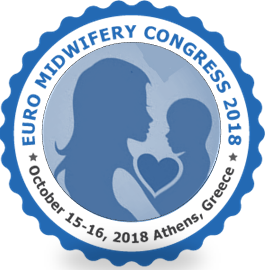
Anagnostou
University Clinic Frankfurt am Main, Germany
Title: Morbidity in newborns readmitted into a pediatric clinic after discharge from a maternity unit during the first 28 days of their lives - results from the Rhine-Main area, Germany
Biography
Biography: Anagnostou
Abstract
Background: The decreasing length of postnatal hospital stays over the years requires close monitoring of newborns by paediatricians and midwives. Little is known about the reasons leading to neonatal readmissions and their outcomes.
Objective: To examine the factors associated with early neonatal rehospitalisation and indentify predictive parameters.
Methods: Newborns admitted to a paediatric clinic in the Rhine - Main area during a 10-year-period (2004-2013) were retrospectively analysed based on their medical files.
Results: A total of 2851 newborns was recorded. 72 % were delivered by vaginal birth. During the 10-year-period, there was a certain fluctuation, but without a significant trend in the number of admissions per year (p = 0.062). Jaundice was the most frequent main diagnosis (27 %), followed by newborn infection (12.4 %), and feeding problems (12.3 %). Between October and March jaundice was more frequent than between April and September (29.0 % vs. 24.5 %, p < 0.001). "ALTE"/apnoea/cyanosis was the sixth most frequent diagnosis at 7.9 %. Newborns exclusively breastfed had fewer feeding problems than newborns with a mixed or an exclusively formula based diet (p < 0.001).
Conclusions: Hospital readmissions of newborns throughout the years did not increase. The most frequent reasons for neonatal hospital readmissions are jaundice (more frequent in winter than summer) and newborn infection. Due to the retrospective character of the study, a clear statement as to whether hospitalisation can be prevented with more intense preventative measures is not possible. A prospective study in this matter is being planned.

